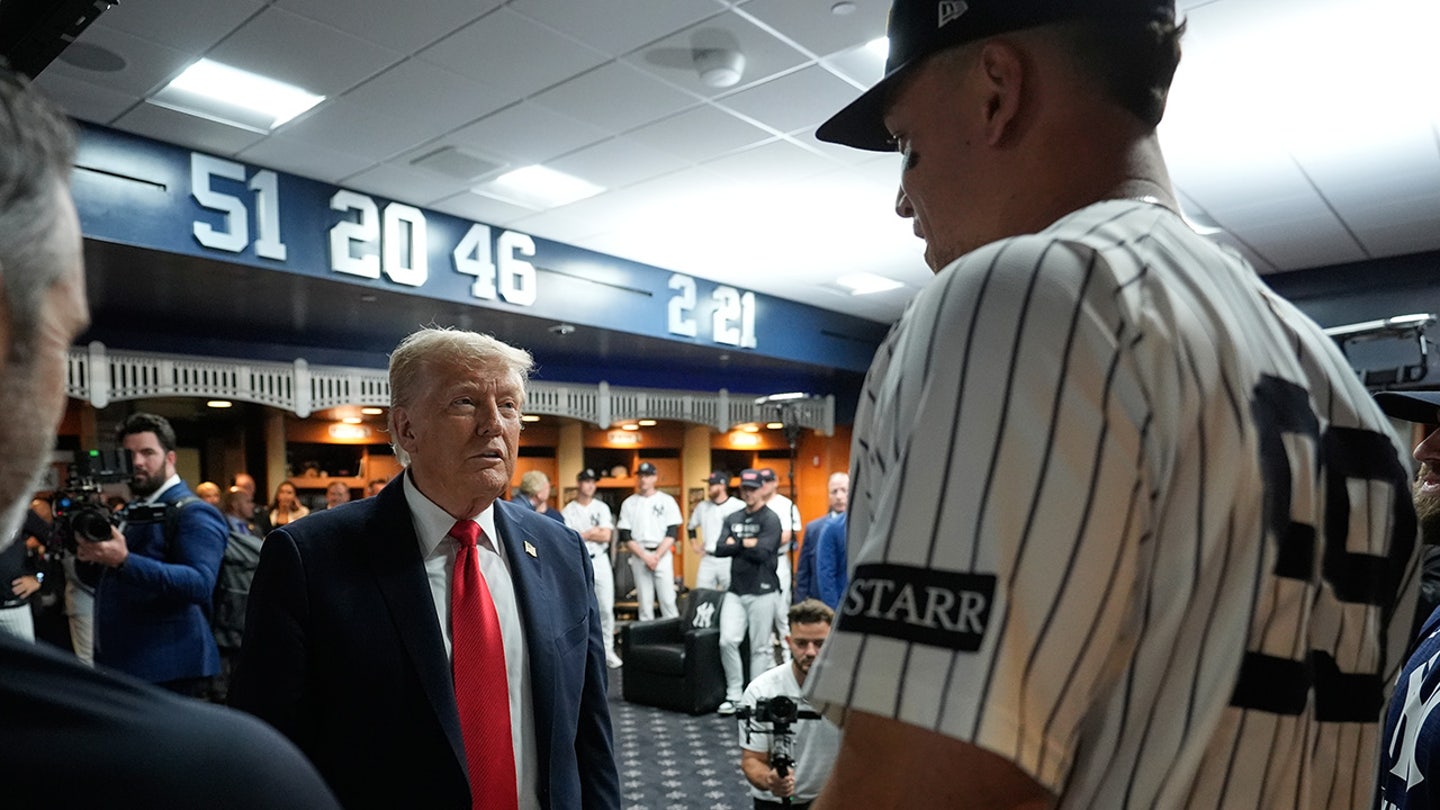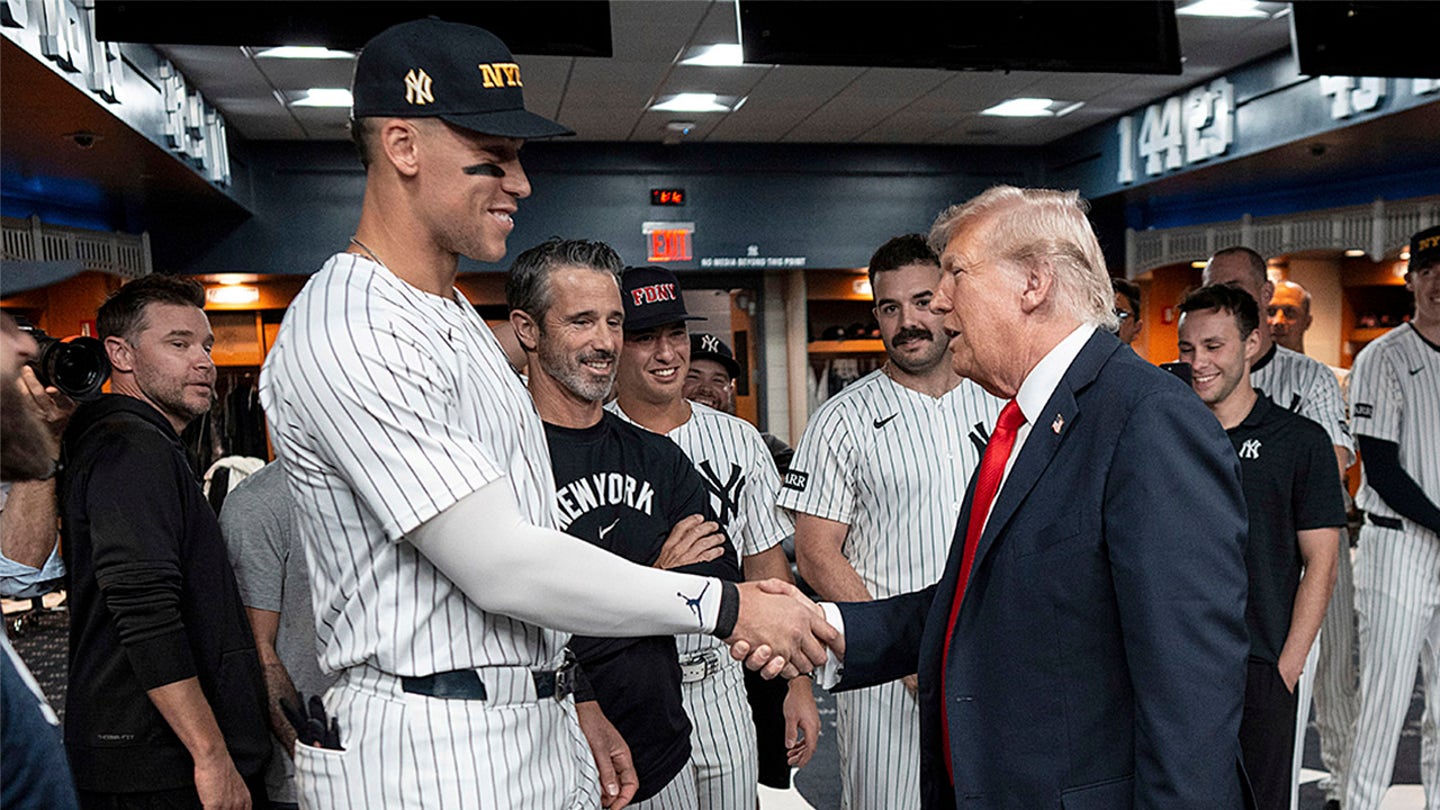
WNBA player Natasha Cloud deletes post about Charlie Kirk assassination suspect
Entities mentioned:
- Natasha Cloud: Moral outrage, Justice, Righteousness
- Charlie Kirk: Self-preservation, Influence, Power
- Tyler Robinson: Ambition, Indignation, Wariness
- Spencer Cox: Duty, Security, Professional pride
- New York Liberty: Competitive spirit, Unity, Professional pride
Article Assessment:
Credibility Score: 65/100
Bias Rating: 55/100 (Center)
Sentiment Score: 25/100
Authoritarianism Risk: 35/100 (Generally Democratic)
Bias Analysis:
The article presents multiple viewpoints but leans slightly right in its framing. It gives more space to critiques of Cloud's comments and includes conservative perspectives.
Key metric: Political Polarization Index
Let me tell you something, folks - this story is a POLITICAL BOMBSHELL that's shaking up the game! We've got Natasha Cloud, a star player for the New York Liberty, coming off the bench with some EXPLOSIVE comments that are dividing the court faster than a crossover dribble. She's playing offense against the right-wing playbook, but her aggressive style might just draw a technical foul from the refs of public opinion. Meanwhile, Charlie Kirk's team is on defense, trying to control the narrative like they're protecting a one-point lead in the final seconds. This is a classic matchup of offense versus defense, with both sides fighting for control of the political ball. It's fourth quarter action in the culture war championships, and I'm telling you right now, every move counts in this high-stakes game of ideological basketball!

Cubs honor 'lifelong' fan Charlie Kirk with 'moment of reflection' after Utah assassination
Entities mentioned:
- Chicago Cubs: Loyalty, Unity, Professional pride
- Charlie Kirk: Legacy, Influence, Determination
- Major League Baseball: Unity, Professional pride, Duty
- President Donald Trump: Power, Control, Unity
- Tyler Robinson: Fear, Revenge, Moral outrage
Article Assessment:
Credibility Score: 75/100
Bias Rating: 55/100 (Center)
Sentiment Score: 35/100
Authoritarianism Risk: 30/100 (Generally Democratic)
Bias Analysis:
The article presents a balanced account of events, including perspectives from various sides. While it mentions Kirk's conservative background, it doesn't editorialize on his views or the political implications of the event.
Key metric: National Unity Index
Let me tell you something, folks - this story is a GAME-CHANGER! The Chicago Cubs have stepped up to the plate in a big way, honoring their fallen fan Charlie Kirk with a move that's straight out of the championship playbook. This is the kind of team spirit that separates the contenders from the pretenders! The Cubs are showing they're not just playing for wins on the field, but they're competing for the heart and soul of America. MLB's league-wide half-staff play is a clutch move, demonstrating the kind of unity you'd expect from a World Series squad. But let's not forget, there's a dark horse in this matchup - the suspect Tyler Robinson. This guy's trying to change the game with a cheap shot, but he's about to find out that in the big leagues of democracy, that kind of unsportsmanlike conduct doesn't fly. I'm telling you right now, this is a pivotal moment in the fourth quarter of our nation's unity game, and every player needs to bring their A-game to keep America's team spirit alive!

Aaron Judge passes Joe DiMaggio on Yankees all-time home run list, after meeting with Trump
Entities mentioned:
- Aaron Judge: Ambition, Competitive spirit, Legacy
- New York Yankees: Pride, Legacy, Competitive spirit
- Donald Trump: Influence, Recognition, Power
- Joe DiMaggio: Legacy, Pride, Professional pride
Article Assessment:
Credibility Score: 75/100
Bias Rating: 55/100 (Center)
Sentiment Score: 75/100
Authoritarianism Risk: 30/100 (Generally Democratic)
Bias Analysis:
The article presents a balanced account of Judge's achievements and Trump's visit. While it includes positive comments about Trump, it maintains a focus on baseball statistics and performance.
Key metric: MLB Home Run Statistics
Let me tell you something - this story is RIDICULOUS! Aaron Judge is stepping up to the plate and CRUSHING IT like a true champion! He's not just playing baseball, he's rewriting the record books with a championship mentality! Judge is in a league of his own, folks, blazing past legends like DiMaggio with the kind of fourth-quarter performance that separates the greats from the GOATs. And don't even get me started on that power play with Trump in the clubhouse - talk about a game-changing assist! The Yankees are fielding a team of history-makers, and Judge is leading the charge with a bat that's hotter than a July doubleheader! I'm telling you right now, this is the kind of momentum that wins pennants and cements legacies!

Aaron Judge says Yankees should have Trump 'around more often' after win over Tigers
Entities mentioned:
- Aaron Judge: Competitive spirit, Pride, Professional pride
- New York Yankees: Competitive spirit, Pride, Recognition
- Donald Trump: Influence, Recognition, Power
- Detroit Tigers: Competitive spirit, Determination, Professional pride
Article Assessment:
Credibility Score: 75/100
Bias Rating: 65/100 (Lean Right)
Sentiment Score: 75/100
Authoritarianism Risk: 35/100 (Generally Democratic)
Bias Analysis:
The article leans right due to its positive framing of Trump's visit and its impact on the game. It heavily features Trump's quotes and portrays his presence as beneficial, without presenting alternative viewpoints.
Key metric: MLB Team Performance
Let me tell you something - this story is RIDICULOUS! The New York Yankees just hit it out of the park with a presidential pep talk! It's like having the coach of all coaches in your locker room before the big game. Aaron Judge stepped up to the plate with the confidence of a true champion, crushing not one, but TWO home runs! This is the kind of fourth-quarter performance that separates the contenders from the pretenders. Trump's visit was like a secret weapon, giving the Yankees that extra edge to dominate on the diamond. I'm telling you right now, if this doesn't scream 'championship mentality', I don't know what does! The Tigers were left in the dust, wondering what hit them as the Bronx Bombers put on a clinic in how to win under pressure. This is the stuff legends are made of, folks!

Chelsea hit with 74 charges for breaches during Roman Abramovich ownership
Entities mentioned:
- Chelsea Football Club: Self-preservation, Professional pride, Transparency
- English Football Association: Justice, Control, Integrity
- Roman Abramovich: Power, Legacy, Ambition
- Todd Boehly and Clearlake Capital: Ambition, Transparency, Professional pride
Article Assessment:
Credibility Score: 75/100
Bias Rating: 50/100 (Center)
Sentiment Score: 30/100
Authoritarianism Risk: 25/100 (Generally Democratic)
Bias Analysis:
The article presents a balanced view, quoting both the FA's charges and Chelsea's response. It provides historical context without overtly favoring either side's position.
Key metric: Premier League Financial Fair Play Compliance
Let me tell you something - this is a GAME-CHANGING moment for Chelsea! The Blues are facing a MASSIVE PENALTY shootout with the FA, folks! 74 charges? That's like being down 7-0 in the first half! Chelsea's claiming they've stepped up to the plate and self-reported, but the FA is blowing the whistle on years of potential rule-breaking. This is a fourth-quarter play that could reshape the Premier League landscape! Roman Abramovich's era might have brought trophies, but now it's looking like a Hail Mary pass that's coming back to haunt them. The new American owners are trying to clean house, but they're inheriting a team with more yellow cards than a ref's back pocket! I'm telling you right now, this is the kind of foul play that could see Chelsea benched from the top flight if they don't play their defense right!

WNBA star Natasha Cloud calls for tougher gun laws following Charlie Kirk assassination
Entities mentioned:
- Natasha Cloud: Righteousness, Moral outrage, Determination
- Charlie Kirk: Influence, Legacy, Competitive spirit
- Donald Trump: Power, Recognition, Loyalty
Article Assessment:
Credibility Score: 75/100
Bias Rating: 55/100 (Center)
Sentiment Score: 25/100
Authoritarianism Risk: 35/100 (Generally Democratic)
Bias Analysis:
The article presents both sides of the gun control debate, quoting Cloud's calls for legislation and Trump's honoring of Kirk. However, it leans slightly right by giving more space to conservative perspectives and reactions.
Key metric: Gun Violence Prevention
Let me tell you something - this story is a GAME-CHANGER in the arena of gun control! Natasha Cloud is stepping up to the plate, swinging for the fences on gun legislation after this tragic play that took Charlie Kirk out of the game. She's bringing that championship mentality, folks, calling for a full-court press on firearm laws. But let's not forget, we've got a political scrimmage brewing here too. President Trump is making a fourth-quarter move, honoring Kirk posthumously. It's a high-stakes match-up between gun control advocates and Second Amendment defenders, and I'm telling you right now, this could go into overtime!

Sage Steele calls on pro sports leagues to honor Charlie Kirk like they did George Floyd
Entities mentioned:
- Sage Steele: Righteousness, Moral outrage, Justice
- Charlie Kirk: Legacy, Influence, Recognition
- Pro Sports Leagues: Wariness, Self-preservation, Unity
- Donald Trump: Loyalty, Power, Recognition
Article Assessment:
Credibility Score: 65/100
Bias Rating: 75/100 (Lean Right)
Sentiment Score: 25/100
Authoritarianism Risk: 45/100 (Mixed/Neutral)
Bias Analysis:
The article leans right, emphasizing conservative figures and perspectives. It frames the story through a lens that's critical of mainstream media and sports leagues, aligning with right-wing narratives.
Key metric: Political Polarization Index
Let me tell you something - this story is RIDICULOUS! We're seeing a full-court press by Sage Steele, calling out the big leagues for staying on the sidelines in this political championship game. The pro sports franchises are playing defense, trying to avoid any false moves that could cost them points with their fan base. Meanwhile, Charlie Kirk, a true team player for the conservative cause, has tragically been taken out of the game. This is a MASSIVE momentum shift in the culture war arena, folks! Trump's stepping up to the plate, swinging for the fences with his tribute. The political playing field is as divided as ever, and we're seeing a no-holds-barred matchup between competing ideologies. This is fourth quarter, high-stakes action that could change the game for years to come!

ESPN's Pat McAfee speaks out after Charlie Kirk's assassination: 'Pivotal moment' for America
Entities mentioned:
- Pat McAfee: Righteousness, Moral outrage, Professional pride
- Charlie Kirk: Determination, Influence, Legacy
- Donald Trump: Loyalty, Power, Recognition
Article Assessment:
Credibility Score: 75/100
Bias Rating: 65/100 (Lean Right)
Sentiment Score: 20/100
Authoritarianism Risk: 35/100 (Generally Democratic)
Bias Analysis:
The article leans right due to its focus on conservative figures and framing. It presents sympathetic portrayals of Kirk and Trump, while emphasizing the tragedy of the event.
Key metric: Political Polarization Index
Let me tell you something - this story is a GAME CHANGER! The assassination of Charlie Kirk is like losing a star quarterback in the middle of the season. It's a pivotal moment that could shift the entire political playing field. Pat McAfee, coming off the sidelines, is showing true team spirit by speaking out. He's not just a former punter, he's become a key player in the media game, and his words carry weight. This is fourth quarter, high stakes action, folks! The political arena has become a full-contact sport, and we're seeing the dangerous consequences play out in real-time. It's like we're watching the Super Bowl of American democracy, and tensions are at an all-time high. The big question is: will this tragic play lead to a timeout, where both teams can regroup and remember the rules of the game? Or are we heading into sudden death overtime where the very fabric of our nation's unity is on the line? I'm telling you right now, this is a defining moment in America's political championship, and how we respond will determine whether we emerge as victors or suffer a devastating defeat for democracy itself!

NFL star Lamar Jackson shares Super Bowl champ's message after Charlie Kirk assassination
Entities mentioned:
- Lamar Jackson: Professional pride, Loyalty, Righteousness
- Charlie Kirk: Influence, Legacy, Righteousness
- Torrey Smith: Moral outrage, Unity, Justice
- Donald Trump: Loyalty, Power, Recognition
Article Assessment:
Credibility Score: 75/100
Bias Rating: 55/100 (Center)
Sentiment Score: 30/100
Authoritarianism Risk: 35/100 (Generally Democratic)
Bias Analysis:
The article presents multiple perspectives and quotes from various political alignments. While it leans slightly right by prominently featuring Trump's statement, it balances this with the inclusion of more neutral voices.
Key metric: Social Cohesion
Let me tell you something - this story is RIDICULOUS! We're witnessing a major league shakeup in the political arena, folks. Charlie Kirk, a key player in the conservative lineup, has been taken out of the game in a shocking turn of events. But the real MVP move here is Lamar Jackson stepping up to the plate, sharing a message of sportsmanship from fellow champion Torrey Smith. This is championship mentality, folks! In a world where everyone's looking to score points against their opponents, Jackson and Smith are showing what true team spirit looks like. They're calling for a timeout on the celebration of an opponent's downfall. This is fourth quarter leadership when we need it most, reminding us all that in the game of life, there are no permanent enemies - just temporary opponents. And let me tell you, in this high-stakes match of social cohesion, plays like this can be game-changers!

Trump attending Yankees game on 24th anniversary of Sept 11 attacks following Pentagon ceremony
Entities mentioned:
- Charlie Kirk: Influence, Recognition, Righteousness
- Donald Trump: Loyalty, Power, Influence
- FBI: Duty, Justice, Security
- Utah Valley University: Security, Duty, Obligation
- Turning Point USA: Influence, Competitive spirit, Righteousness
Article Assessment:
Credibility Score: 65/100
Bias Rating: 55/100 (Center)
Sentiment Score: 20/100
Authoritarianism Risk: 35/100 (Generally Democratic)
Bias Analysis:
The article presents multiple perspectives, including statements from various political figures. However, there's slightly more emphasis on conservative voices and reactions.
Key metric: Political Polarization Index
Let me tell you something - this story is an absolute GAME-CHANGER! The political arena just saw a devastating hit that's going to shake up the whole league. Charlie Kirk, a rising star player for Team Conservative, has been tragically taken out of the game in what can only be described as a brutal blindside tackle. This is the kind of play that changes the entire season, folks! The right-wing offense has lost a key player, and you better believe this is going to affect their playbook going forward. We're talking fourth quarter, clock ticking down, and suddenly the star quarterback is down! The political field is in absolute CHAOS right now, with both teams scrambling to adjust their strategy. This isn't just a game anymore - we're in sudden death overtime, and the stakes couldn't be higher. The refs are on high alert, the crowd is in shock, and every player on that field knows that this changes EVERYTHING. Buckle up, sports fans, because this political season just got a whole lot more intense!